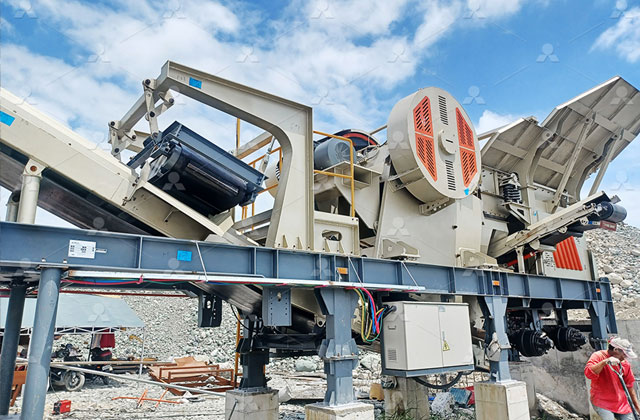Mobile jaw crushers are a pivotal tool in the extraction and processing of primary aggregates. These crushers are essential for operations requiring the processing of raw materials like granite, basalt, and limestone. Here’s a comprehensive overview of their functionality, advantages, and considerations.
Functionality
Mobile jaw crushers are designed to handle large chunks of material. They consist of a fixed jaw and a moving jaw, which together create a crushing chamber. When the material is fed into the chamber, the moving jaw exerts force on it, breaking it down into smaller pieces. This process is ideal for primary crushing, where the goal is to reduce the size of the raw material to make it manageable for further processing.

Advantages
- Mobility and Flexibility: The primary advantage of mobile jaw crushers is their mobility. Mounted on tracks or wheels, they can be easily transported between different job sites. This flexibility is especially beneficial in projects where materials need to be processed on-site, reducing the need for transporting raw materials to a stationary crusher.
- Ease of Setup: Mobile jaw crushers are designed for quick setup and operation. They require minimal groundwork and can be operational within a short time frame. This ease of setup helps in reducing downtime and increasing productivity.
- Cost-Efficiency: By processing materials on-site, mobile jaw crushers can significantly reduce transportation costs and logistical challenges. This cost-efficiency makes them a popular choice for operations in remote or temporary locations.
- High Throughput: Despite their mobility, these crushers do not compromise on performance. They can handle a high volume of material and are capable of producing a consistent output size, which is crucial for quality control in aggregate production.
- Versatility: Mobile jaw crushers can be equipped with various attachments and accessories, such as magnets for removing metal contaminants and screens for sorting material. This adaptability enhances their functionality and makes them suitable for a wide range of applications.
Considerations
- Maintenance: While mobile jaw crushers are designed for durability, regular maintenance is crucial to ensure optimal performance. Components such as jaws, bearings, and hydraulic systems require periodic checks and servicing.
- Operational Costs: While they can reduce transportation costs, mobile jaw crushers do have operational costs including fuel, wear parts, and potential repairs. It’s important for operators to consider these factors when budgeting for a project.
- Size Limitations: The size of the feed material that a mobile jaw crusher can handle is limited by the design of the machine. Extremely large or tough materials may require pre-crushing or the use of larger, more robust crushers.
Mobile jaw crushers play a crucial role in the primary crushing of aggregates, offering advantages such as mobility, ease of setup, and cost-efficiency. They are well-suited for operations where flexibility and on-site processing are essential. However, considerations regarding maintenance, operational costs, and size limitations should be addressed to maximize their effectiveness. In summary, mobile jaw crushers are a valuable asset in the aggregate industry, providing a blend of performance and convenience for various crushing needs.
